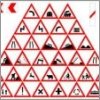Articles
Post Required Federal Signs for Association Employees

Federal laws require employers including community associations and management companies to post signs explaining legal information to their employees. Failure to post the signs can cost as much as $10,000 per violation. Fortunately, compliance is easy. The signs are available free of charge from the government agencies that oversee the sign-posting laws.
Insurer Required to Cover Members’ Fire-Damaged Homes
Facts: A fire that started in one condominium unit spread to adjoining units, causing substantial fire and smoke damage. The insurer made payments to the association that covered damages to certain structural elements of the building, but did not cover individual members' damage to the interior of their units. Both parties argued over the extent of property coverage required by the association's governing documents. A trial court ruled in favor of the members, and the insurer appealed.
Improve Member Safety, Reduce Costs with Proper Outdoor Lighting

In the past, communities have tackled the need for better outdoor lighting by installing high-intensity discharge (HID) lighting sources that essentially blast the grounds with light. Unfortunately, high-intensity lighting typically casts hard shadows, produces an unnatural look, and distorts color, while adding significantly to the monthly electric bill.
Rising Foreclosures May Lead to Increased Mosquito Hazards

The National Pest Management Association is warning that abandoned homes can become breeding grounds for mosquitoes in the summer months. The NPMA says the increasing numbers of foreclosures in the last 12 months has heightened the potential for mosquito infestations, especially in and around foreclosed homes with backyard pools.
Members Must Comply with Association’s Setback Requirements
Facts: When a couple decided to construct an addition to their home, they met with a member of the association's architectural review committee. The committee member told them that the adjustments that they wanted to make were not in compliance with the rear setback provision established in the governing documents.
Developer Must Restore Golf Course
Facts: A homeowner association sued the developer of the community to require it to restore the community's golf course. The community was marketed to prospective purchasers as a golf course community. The presence of the golf course was essential to the members' decisions to purchase, and the golf course enhanced the value of their property. After a problem with the irrigation system, the grass died, and the golf course was closed.
Housing Turmoil Forces Condo Developers, Buyers to Jump Through Regulatory Hoops

As the impact of the housing crisis ripples through the economy, condominium developers are scrambling to seek government approval for their condominium buildings in the hopes that obtaining the appropriate approval will help sell their units. Currently, condominiums represent the weakest segment of the housing market. According to the National Association of Realtors, condo sales in April fell 12.5 percent from a year ago, compared with a 3.6 percent decline in sales for single-family homes.
Association Allowed to Hold Special Meeting
Facts: A dispute arose between a member and her neighbors regarding access to the member's air conditioning unit for servicing through a trapdoor in a fence separating their two properties. As the dispute intensified, the neighbors circulated two letters to other members of the association to have the member removed from the association's board of directors. The letters accused the director of abusing her position as chair of the architecture and landscape committee and lying to other members of the board.
Association Must Sue Individuals of Dissolved Company for Construction Defects
Facts: A Washington condominium association sued the limited liability company that developed the condominium for construction defects. However, after the building was completed, the company ceased active operations and did not pay license fees or file reports as required by law. Eventually, the secretary of state administratively dissolved the company.
Association Not Liable for Defamation
Facts: In a rural California homeowners association with 16 members, one member witnessed two dogs attack his pet goat. He chased them off and followed them to their owner's house. The member told other members in the area, including the association president, about the attack.
